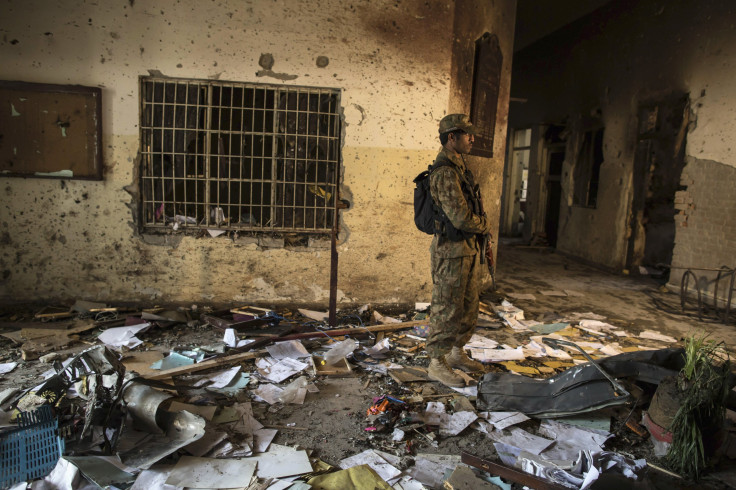Pakistan Schools Reopen Amid Tightened Security After Taliban's Peshawar Attack

Thousands of schools across Pakistan, including Peshawar's army-run school that witnessed the deadly Taliban attack in December, reopened Monday. The schools resumed after an extended winter break following the massacre that claimed the lives of over 140 people.
Pakistani authorities have tightened security at all schools in the country, while new arrangements have been made at the army-run school. The school has been reportedly repainted and the entrance fitted with an airport-style security gate. The boundary walls of the school have also been elevated, with barbed wires fixed on the top of the walls, according to Agence France-Presse (AFP). At least 20 soldiers were reportedly stationed at the school's main entry point. However, classes are not expected to begin until later this week, according to The Associated Press.
Officials in the provincial education department said that they were taking “all possible measures” to ensure adequate safety in schools across the country, Dawn, a local news network, reported.
But, the experience has been traumatic for many students. "I have lost 30 of my friends, how I will sit in the empty class, how I will look to their empty benches," Shahrukh Khan, 16, told AFP, before the school reopened, adding: “My heart has been broken. All the class fellows I had, have died, now my heart does not want to attend school."
Seven Taliban militants had stormed the army-run school on Dec. 16, and killed over 130 children.
Some students, however, strike an audacious tone. "I am not scared, no force can stop me from going to attend my school, I will go and will tell the attackers, 'we are not afraid of you'," Zahid Ayub, 16, who sustained minor wounds, told AFP.
The attack was condemned by several world leaders while Pakistan’s Prime Minister Nawaz Sharif lifted the moratorium on death penalty and ordered the attorney general’s office to "actively pursue" the capital cases that were currently in the courts.
© Copyright IBTimes 2024. All rights reserved.






















